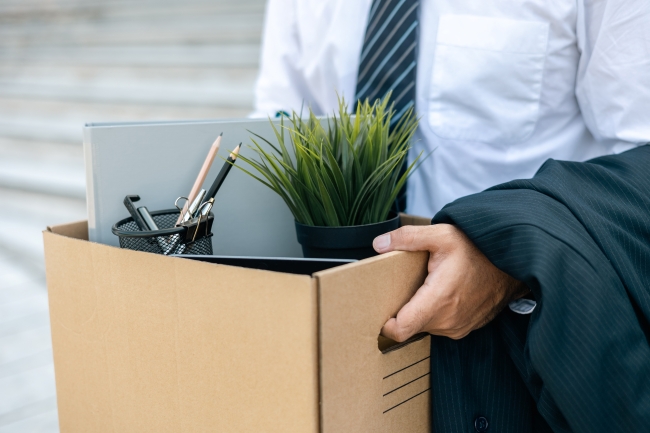
Once upon a time, it was normal for people to spend their entire working lives with one employer. That’s no longer the case. Job hopping is becoming the norm, which means employee benefits like health, life, and disability insurance don’t tend to last long. If your clients depend on group DI, it’s time to show them the importance of portable individual disability insurance coverage.
How Job Hopping Became the Norm
A 100-year-old man worked at the same company for 84 years, according to Upworthy. That’s an extreme case – most people don’t work for 84 years anywhere, let alone at the same company – but it used to be more common for people to stay with a company for decades.
According to Psychology Today, employers used to entice workers to stay by offering pensions, healthcare, and vacation time. As a result, workers were loyal. Over the years, this changed. By the time Generation X entered the workforce, people didn’t expect to stay with the same company for decades.
Fortune explains that many workers see switching jobs as the only way to advance their careers. Indeed, ADP research shows that nearly 75% of workers leave an employer without ever receiving a promotion, while fewer than 1% of those who stay get a promotion by their third year. Young workers may be especially prone to job hopping – 83% of Gen Zers consider themselves job hoppers, according to ResumeLab.
Of course, it’s not always the worker’s decision to leave. Layoffs are not only possible, they appear to be on the rise. According to CBS News, employers cut 172,017 jobs in February 2025. That’s about twice as many layoffs as occurred in February 2024 and the highest level since July 2020, when the COVID-19 pandemic was in full swing.
BLS data shows that workers only stay with a company for an average of 3.9 years, as of January 2024 – down from 4.1 years in January 2020. With an average tenure of just 3.6 years, women are more likely to switch jobs than men.
The Impact of Job Hopping on Benefits
Job hopping might be an effective way of advancing your career, but it’s also stressful. When you switch jobs, you have to learn a new company culture and there’s a risk that things won’t work out.
You also have to switch employee benefits. American workers receive a lot of critical insurance through their work, and these benefits aren’t usually portable. When they switch jobs, they have to give up their job-based health, dental, vision, life, and disability insurance. There’s no guarantee that their next job will offer similar coverage. Some workers may take a job because it’s more rewarding or offers a better salary even though the benefits aren’t as good. Others may be laid off and forced to accept whatever work they can find.
The Importance of Locking In Portable Coverage
Workers who have job-based group disability insurance might think they have the coverage they need or assume they can buy individual disability insurance in the future, if it’s ever necessary. However, purchasing coverage later may not be so easy.
Consider the following scenario:
Jennifer is a 30-year-old worker. Her employer provides a generous benefits package that includes group disability insurance. Since she’s young and healthy, she doesn’t think she needs more coverage and doesn’t want to spend money on it.
Two years later, Jennifer is diagnosed with cancer and has to take time off work. She files a disability insurance claim. Her employer gives her time off because it’s an FMLA requirement, but she doesn’t find the employer supportive and doesn’t think there’s much chance of her receiving a promotion. After she recovers, she decides to quit and find a better job.
She finds her dream job – but it doesn’t provide group disability insurance. Knowing first hand how important coverage is, she decides to buy individual disability insurance. However, with her recent cancer battle, finding affordable coverage with the benefits she wants is challenging. She wishes she had purchased coverage when she was younger and healthier.
You Never Know What the Future Will Bring
Since workers no longer expect to stay with the same company for decades, why would they depend on a job for important benefits? Whether they quit or are laid off, they’ll probably end up looking for a new position sooner or later. Having portable independent disability insurance will make the transition easier. If your clients have turned down coverage because they have group DI, make sure they understand how depending on job-based coverage could cause problems in the future. They can always keep their group DI policy and supplement it with individual coverage.
Are you looking for coverage for your clients? Request a quote.
